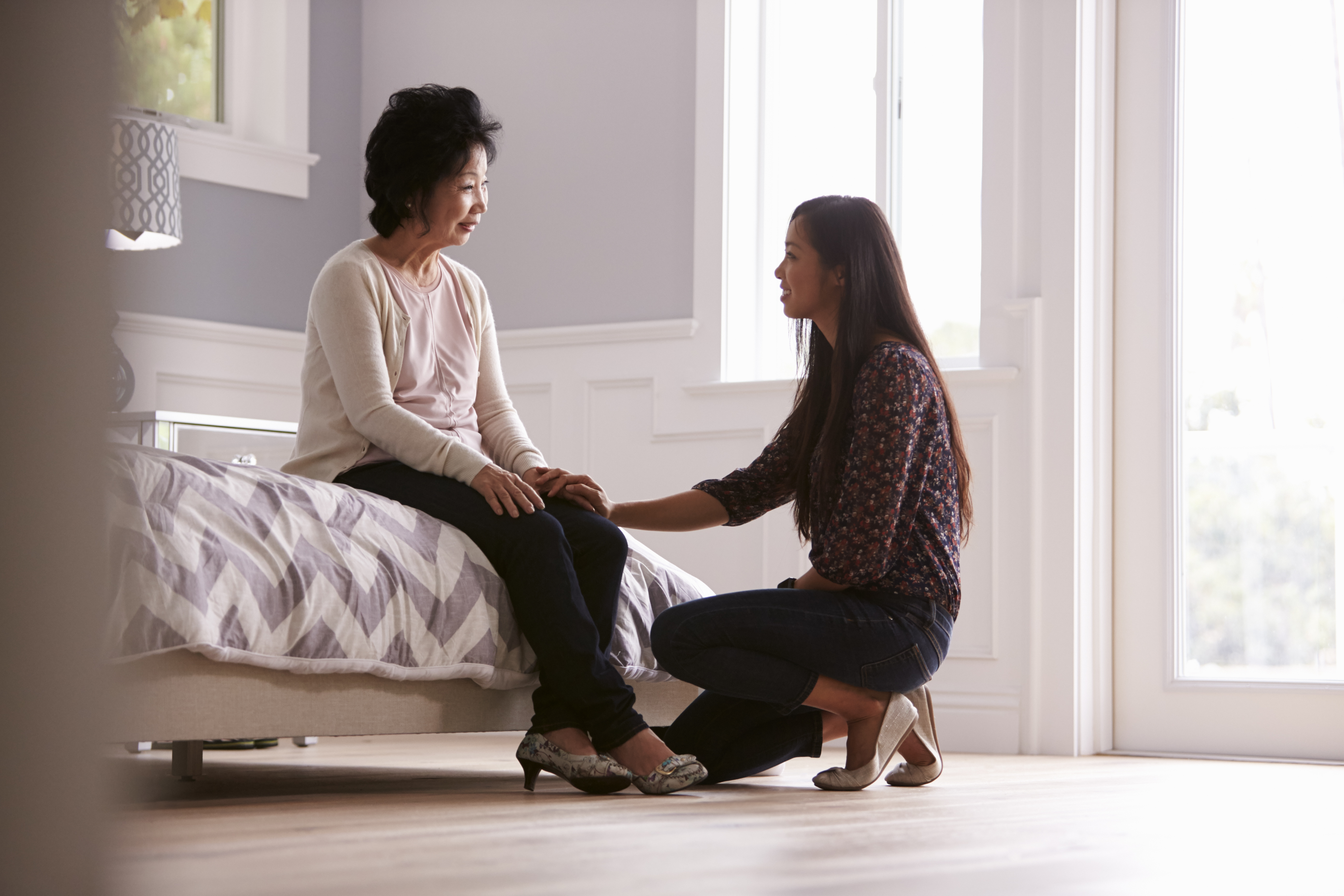AARP Hearing Center

As a volunteer companion for people living with dementia, Lisa Spencer, 66, makes sure to let the individuals she spends time with know that it’s fine to talk about whatever they want, even if it’s reminiscing about the same fishing trip 12 times.
Spencer recalls meeting with one man whose son was visiting from California. The son told her that his father had spoken more in one hour with her than in the past three days with him.
“It may have been the stories that [the father] kept telling me over and over again,” she says. “The son may have heard the stories, but I acted like they were brand new.”
The Woodstock resident is one of 51 volunteers participating in a Johns Hopkins Medicine research study called MEMORI Corps that aims to determine whether providing companionship and personalized activities—primarily in a virtual setting—can help improve the health and well-being of individuals with dementia, the loved ones who care for them and the volunteer companions themselves.
Lead researcher Quincy Samus, an associate professor of psychiatry and behavioral sciences at Johns Hopkins Medicine, found in her prior research that many individuals who had dementia and were living at home weren’t getting the physical exercise or socializing they needed.
“People had huge unmet needs for having meaningful activity opportunities in their everyday lives,” Samus says.
About 6.7 million Americans 65 and older are living with Alzheimer’s dementia, according to the Alzheimer’s Association.
Loneliness and social isolation—which can increase the risk of heart disease, stroke, depression and other illnesses—can also take a toll on caregivers.
“They’re taking on the burden in terms of how they balance their work life, their family life and their caregiving duties,” says Jen Holz, outreach director for AARP Maryland, which helped recruit participants for the MEMORI Corps study.
Some caregivers struggle just to be able to leave the house to buy groceries, says Kevin Jameson, president and founder of the Dementia Society of America.
Humans need social networks, Jameson says: “Our brains need to be stimulated.”
Connecting virtually
Samus initially planned for the MEMORI—which stands for Making Engagement Meaningful through Organized Routine Interaction—Corps study to connect volunteers and families in person.
But then COVID-19 hit, so she decided to launch the program virtually instead. The shift allowed the study to include rural and underserved communities beyond the Baltimore metropolitan area.
Volunteer companions meet with individuals via a virtual platform such as Zoom each week for 12 weeks, following an activity plan that’s customized based on the person’s interests and abilities. They might play a trivia game, do simple math problems, watch a YouTube video of a Rolling Stones concert or just reminisce.
Volunteers receive training and can attend weekly support groups to share their experiences. The study also has a geriatric psychiatrist on call and available to provide support, Samus says.
The study is measuring the effect of the interactions on quality of life, social engagement, mental health and other factors. As of January, 54 pairs of individuals with dementia and their caregivers had participated.
While preliminary data isn’t yet available, Samus says feedback from volunteer companions has been positive.
Spencer, who helps care for her own father who has Alzheimer’s disease, says the time she spends with families is just as important for the caregivers. It gives them a break even if it’s just to have a cup of coffee or make a shopping list for the market, Spencer says.
It’s a chance for caregivers to say, “ ‘I can breathe right now for an hour and my dad or my mom or grandmother or whomever it may be is taken care of,’” she says.
Samus says she hopes to eventually conduct a larger follow-up study to assess in-person versus virtual meeting formats.
To learn more about the MEMORI Corps study, go to memoricorps.org.
_________________
Building on Experience to Benefit Older Volunteers
The MEMORI Corps study’s concept was based, in part, on AARP Foundation Experience Corps, a national program that recruits volunteers 50 and older to tutor elementary school students in reading.
While the program aids students, it also helps older adults remain engaged in the community and stay sharp, says Quincy Samus, Johns Hopkins Medicine associate professor of psychiatry and behavioral sciences.
Similarly, MEMORI Corps recruits volunteer companions 55 and older to meet with individuals with dementia living with a caregiver.
It’s possible that volunteers themselves see cognitive benefits because they’re learning new skills and engaging socially in ways they don’t normally, says Samus, the study’s lead researcher.
“We hope that not only do the people living at home with dementia and their caregivers benefit but also the people who are serving them as companion guides,” she says.
Ryan Basen, a Washington-based writer and editor, writes about health care, medicine and other topics.
More on dementia care































































